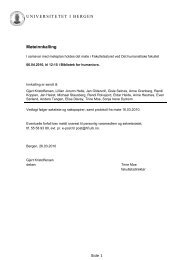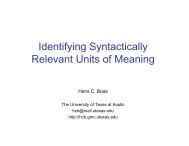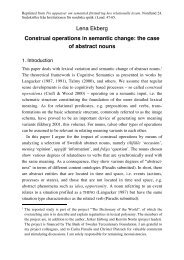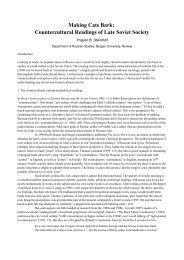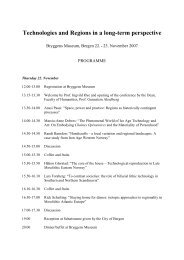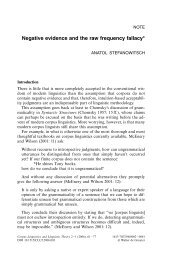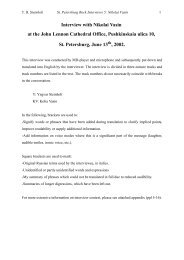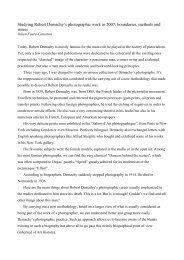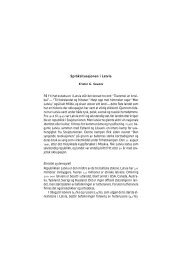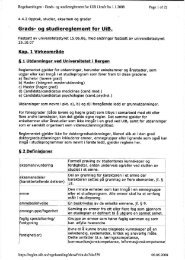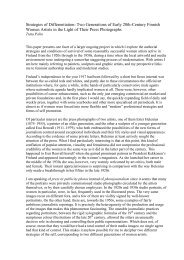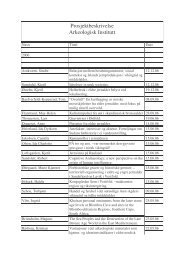THE BOOK OF POEMS IN TWENTIETH-CENTURY ... - TopReferat
THE BOOK OF POEMS IN TWENTIETH-CENTURY ... - TopReferat
THE BOOK OF POEMS IN TWENTIETH-CENTURY ... - TopReferat
Create successful ePaper yourself
Turn your PDF publications into a flip-book with our unique Google optimized e-Paper software.
How many times have flown to you<br />
Inspired dreams—<br />
Just because your name rings,<br />
Brenta, you little red stream,<br />
False image of beauty!<br />
I too hurried once<br />
To glance into your ebb-tides,<br />
Happy and moved<br />
By the inspiration of love.<br />
But bitter was the reward.<br />
Brenta, I looked once<br />
Into your turbid waters.<br />
Since that time, Brenta, I have loved<br />
Solitary wanderings,<br />
The trickling of steady rain,<br />
And on my hunched shoulders<br />
A cloak of wet canvas.<br />
Since that time, Brenta, I have loved<br />
Prose in life and in verse.<br />
Following in the tradition of Byron's and Pushkin's romantic extolments of the Brenta,<br />
the young poet travels to the majestic river but, instead of a magnificent source of<br />
inspiration, discovers only "a rust-colored, mean little stream." 82<br />
The love which drove<br />
him there rewards him only with bitterness. His affair has crumbled, and, more<br />
importantly, his blind trust in romantic images has been broken. All Brenta can offer is a<br />
resonant name, fitting for a poetic line but perpetuating a false image of beauty.<br />
Bethea sees evidence of Khodasevich's poetic maturity in this poem—an<br />
emergence of ironic word-play which will play a central role in his later poetry. By<br />
rhyming Brenta, whose name has been glorified as resonant and ringing, with brezenta<br />
82 In his commentary to Eugene Onegin, Nabokov writes: "In a curious poem, the great poet Vladislav<br />
Hodasevich (1886-1939), a century later, described the kind of therapeutic shock he experienced when,<br />
upon visiting the real Brenta, he found it to be a ryzhaya rechonka, a rust-colored, mean little stream."<br />
Aleksandr Pushkin, Eugene Onegin: A Novel in Verse (Princeton: Princeton University Press, 1975), vol.<br />
2 (Commentary and Index), 186.<br />
66



